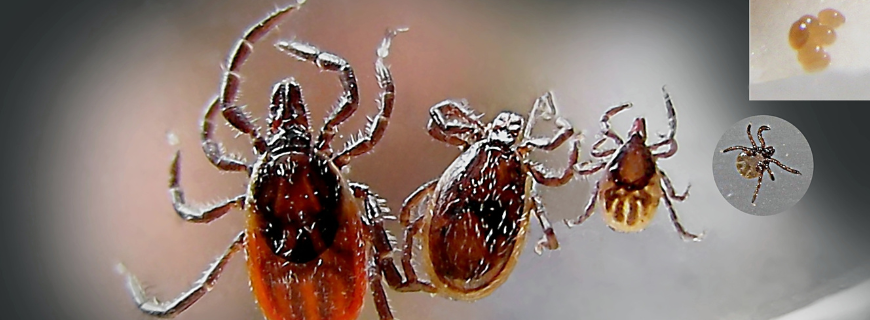8 Blacklegged ticks submitted to SWPH since March 1

Southwestern Public Health is reminding residents to be aware of ticks after a sharp rise in Blacklegged tick, or Deer tick, submissions to the health unit since March 1.
Over the span of two weeks, 8 ticks submitted for identification to the health unit were Blacklegged ticks which can carry the bacteria that causes Lyme disease. In comparison, only 1 Blacklegged tick was submitted to public health the entire month of March in 2023.
“We tend to think of ticks as a warm-weather pest, yet ticks start to become active once temperatures rise above 0oC,” says Serena Roberts, Public Health Inspector at Southwestern Public Health. “The springlike weather we have been experiencing is likely contributing to this early tick activity.”
Lyme disease is an illness caused by the bacteria b. burgdorferi, which is spread to humans through bites from infected ticks. Only Blacklegged ticks carry this bacteria, although not all do. Symptoms of Lyme disease begin 3 to 30 days after a bite and may include fever, headache, and an expanding rash that may or may not resemble a bullseye. The rash can appear anywhere on the body. If untreated, the bacteria can spread through the bloodstream to affect other parts of the body. Late Lyme disease symptoms include arthritis, multiple rashes, and neurological and cardiac issues. Early diagnosis and antibiotic treatment can help prevent these symptoms.
“Protect yourself from ticks by covering up when you are going to be walking through or working in tick habitats – such as tall grasses, shrubs, or piles of leaves,” says Roberts. “If you find a tick attached to you, carefully remove it using a tick removal device and bring it into the health unit for identification. Always inform your health care provider when a tick is attached to you, regardless of what type of tick it is.”
The Environmental Health team at Southwestern Public Health conducts routine surveillance for the presence of medically significant tick species in the region. In 2022, Springwater Conservation Area within the Southwestern Public Health region was added to the Public Health Ontario Risk Map for Lyme Disease.
Contact Us
Southwestern Public Health (8:30 a.m. - 4:30 p.m., Monday - Friday)
St. Thomas Site
(Administrative office)
1230 Talbot Street
St. Thomas, ON N5P 1G9
Woodstock Site
410 Buller Street
Woodstock, ON N4S 4N2
Call us toll free: 1-800-922-0096
Email us
Work with Us
Southwestern Public Health (SWPH) values our people! We pride ourselves on our positive and flexible work environment.
